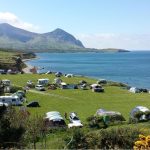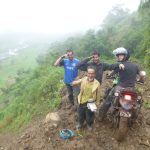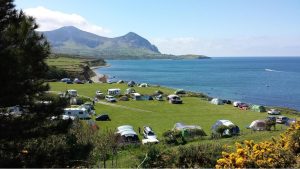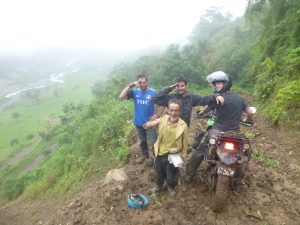Here’s a “duh, no shit” statement:
Hiking the Pacific Crest Trail made me quantifiably less anxious and depressed.
For most, this isn’t revelatory information.
Exercise, nature, food, no social media, and no work? Of course you’ll feel better.
For the curious skeptics, keep reading…
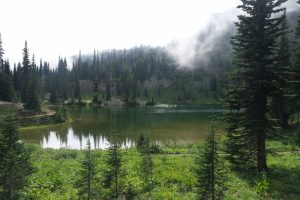
Forest Bathing
In Japan, Shinrin-Yoku or Forest Bathing, is a decades old practice of mindful walking through the forest. It has been scientifically studied dozens of times. In short, these benefits include reduced stress, improved moods, and more energy.
Additional studies have shown that walking in the forest exposes you to essential wood oils, known as phytoncides, which can boost immune function and reduce depression, anxiety, and lethargy.
Still skeptical? There’s also this study.
I can keep going. But let’s move on.
Admittedly, proper forest bathing requires slower walking, not brisk hiking – elevating your heart rate and adrenaline too high can cause stress hormones to be released and thus offset any gains. However, if you are fit, like a thru-hiker, then all is well.
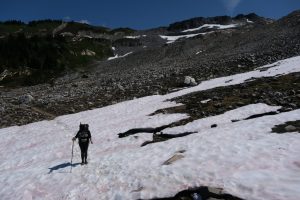
Anxiety & Depression
I’ve dealt with depression since my late teens. Its usually felt like a wet blanket that I had to constantly push off of me. When the depressive wet blanket got too heavy, the depths seemed to have no bottom.
Rarely in my adult life did depression seem to not be present in some form. Perhaps it was just melancholy. Either way, a wet blanket gets heavy over time.
Combine that melancholic state with a stressful coaching career in a relatively public position and you have a recipe for a depressive and anxious shit storm. A shit storm that I wasn’t even totally aware of until I took a step back and quantified my state.
In fact, a large reason for resigning from my career and attempting the Pacific Crest Trail was to reclaim some semblance of wellness. It was the right choice.
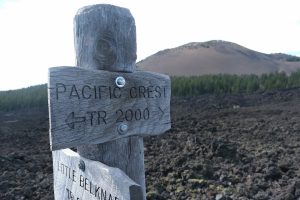
Testing Methods
As a writer and self-experimenter, I didn’t just want to hike the Pacific Crest Trail. I wanted to capture how it would change me; both physically and mentally.
Through a counselor friend, I was given a General Anxiety Disorder (GAD-7) survey and Beck’s Depression Inventory.
The tests are fairly simple and can be viewed here:
On July 6th, 2021, just hours before getting on trail, I took the surveys and results were as follows:
- General Anxiety Disorder Score: 20 – Severe anxiety
- Beck’s Depression Inventory: 23 – Moderate Depression
Not what you would call an ideal mental state.
It is worth noting several likely contributing factors such as:
- Leaving my career where I was heavily relied on
- Closing a large chapter of my life
- Packing up/selling off my belongings
- Leaving my beloved cat behind with a caretaker
- Leaving financial security of a career
However, at the end of the day, the anxiety and depression were bubbling long before the emotional departure for the Pacific Crest Trail. The turning of the page just brought it all to the surface in an emotional crescendo.
The surveys put it all on a page that stared right back at me. It let me know where I actually was.
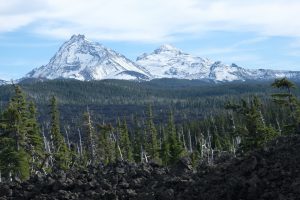
Dr. PCT
The Pacific Crest Trail is equally unforgiving as it is forgiving. It does not care who you are, where you’ve come from, or what your goals are. It just is.
Most people are rightly concerned with the physical toll the trail takes on you. It is not to be taken lightly. Injuries happen all the time and I, myself, developed severe tendonitis and ligamentitis in my left foot and ankle. 9 months later, the pain and inflammation finally subsided but it hampered me long after I got off trail.
Veteran athletes and long-distance hikers know that your mind will carry you further than your body wants to. The PCT lays this bare.
Almost everyday, you have to:
- Wake up with the sun
- Hike 20-30 miles through mountains, valleys, and deserts
- Filter water half a dozen times a day
- Be coated in dirt & grime (you usually only shower once a week)
- Dig cat holes in hard, rocky ground while you desperately need to take a shit
- Squat over said cat hole with tired legs while on the side of a hill (the earth isn’t flat)
- Nearly lose your mind to ruthless mosquitoes
- Avoid sunburns or try to stay warm in freezing mountain rain
- Battle wildfire smoke
But guess what?
It’s a glorious, liberating struggle that many become addicted to. These grounding forces connect you with the earth more than anything else you do on a daily basis. Especially when you’re back home and caught up in the nonsense of “real life.”
You have so much less to worry about.
Just walk, eat, drink, and sleep in some of the most beautiful locations on earth. How can you not become more grounded, calmer, and grateful for what you have?
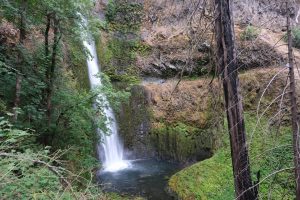
The Results
On October 22nd, 2021, I concluded my hike and took the surveys again. Here are the results:
- General Anxiety Disorder (GAD-7): 2 – Minimal Anxiety
- Beck’s Depression Inventory: 4 – Ups and downs are normal
Excuse my French, but that’s fucking impressive.
In 3 1/2 months, my anxiety went from severe to minimal and my depression went from moderate to what is considered the normal ups and downs.
The change was so profound that I could physically feel the psychological shift. The tightness, angst, and pit of dread were gone. I felt like a new person.
And here’s the kicker, I only hiked 950 of the 2,650 miles of the PCT. Wildfires, snow, and injury all eventually pushed me off trail. Like it did with most 2021 southbound PCT hikers; it was a tough year.
And guess what?
While disappointed not to finish, I was completely content and grateful for the experience and equally important what it did for my mind.
Will I finish it eventually? For sure. With mental benefits like these, why would I not?
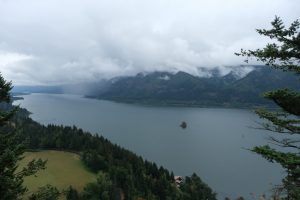
Medical disclaimer: I am not a doctor nor a medical professional. These experiences are my own and I am not advocating for people to stop their normal professional mental health regimen.



